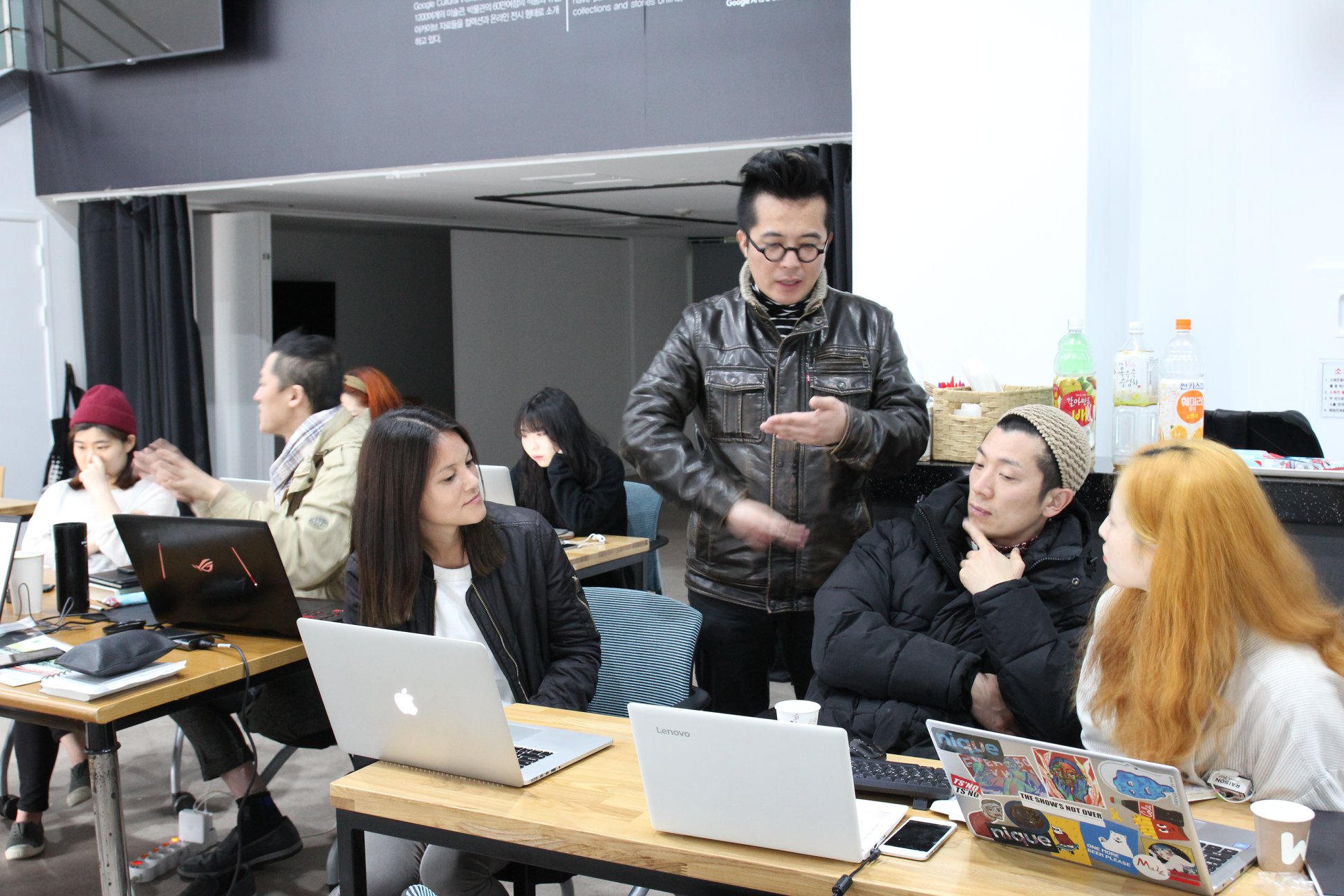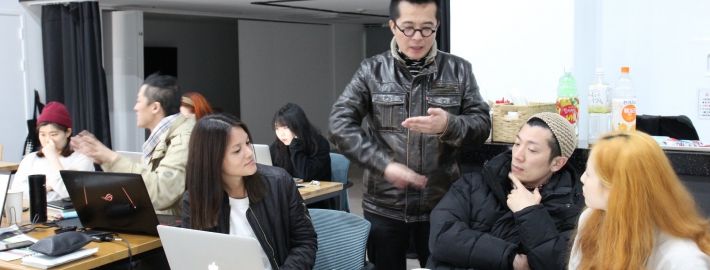5 professors receive 2021 Chancellor’s Award for Community-Engaged Research
By Jonathan Riggs

Students of associate professor Lauren Lee McCarthy (seated, at left) — one of this year’s award recipients — will work closely with members of the disability community on issues of online design accessibility and disability justice. Photo: Courtesy of Lauren Lee McCarthy
Five UCLA faculty members will create dynamic new courses for undergraduates thanks to the third annual Chancellor’s Award for Community-Engaged Research. The awards program, supported by the UCLA Center for Community Engagement and the Chancellor’s Office, provides recipients with individual grants of $10,000 for their projects.
The professors’ classes — in which students will conduct research addressing questions and needs identified in collaboration with community partners — will span a diverse range of subjects, from web accessibility and urban ecology to human rights violations and community wellness.
The 2021 award winners and their courses are:

Michelle Caswell | associate professor of information studies
“Digital Archives, Communities and Memory”
Working closely with community archives, students in Caswell’s course will learn the importance of communities shaping their own narratives about the past to better envision a collective future. (Caswell is also an affiliated member of the Asian American Studies department.) “I hope students gain a deeper appreciation for memory work, particularly the creation and maintenance of digital archives, as a form of activism against ongoing oppressions.”

Lauren Lee McCarthy | associate professor of design media arts
“Design, Disability and the Web”
In this studio-based course, students will engage in collaborative research with the disability community, with a focus on universal design, assistive technology and disability justice. “What I’ve learned from the disability community is the way questions of accessibility can open interesting, creative conversations around what it means to be present, to be accountable and to build online spaces with care.”

Nick Shapiro | assistant professor of human biology and society
“Biomedicine, Mass Incarceration and Accountability”
Students in Shapiro’s class will work alongside human rights organizations, analyzing medical data on the deaths of incarcerated individuals for the purpose of identifying human rights violations. “I hope a takeaway from this class is that the students can both better account for the missteps of science and have a grasp on more equitable methods to engage with, support and advance communities as they identify their most pressing questions.”

David Shorter | professor of world arts and cultures/dance
“Healing, Ritual and Transformation”
As part of Shorter’s course, students will collaborate with healing practitioners and community-based wellness organizations, researching aspects of community wellness and cross-cultural perceptions of health, including structural inequalities in health care and the history of medicinal development. “One of my central aims remains having students be in service to those on the front line of health care outside of allopathic and pharmaceutical approaches. There, students learn about health and healing beyond textbooks and classrooms.”
 Pamela Yeh | associate professor of ecology and evolutionary biology
Pamela Yeh | associate professor of ecology and evolutionary biology“Urban Ecology and Evolution”
Yeh’s class will allow students to explore cities as ecosystems and to study how plants and animals have survived — and in some cases thrived — in urban areas. They will work together with nonprofits in low-income communities of color to create opportunities for long-term avian population monitoring and scientific research. “We live and work in one of the world’s major metropolitan areas, so right in our backyard, we have a fantastic place to do this teaching and research. I hope our students will come to view the community they live in as both a rich resource for advice, help and support in their work, as well as an important obligation and opportunity to give back.”
The faculty members will spend the 2021–22 academic year developing their courses and will begin offering them to undergraduates in 2022–23 or 2023–24.
Although they span many disciplines, the courses are united by a common thread, according to Shalom Staub, director of the UCLA Center for Community Engagement.
“Rooted in impeccable scholarship, each of these courses will empower our students and faculty to take active roles in making the world a better, more just, more inclusive place,” Staub said. “It is deeply inspiring to see UCLA partnering in such creative ways with such a variety of community groups and organizations. Our students will learn tremendously from the expertise residing in these communities and will be able to bring rigorous research to address community-driven questions.”
This article originally appeared in the UCLA Newsroom.



 Photo Credit: Zack Gold
Photo Credit: Zack Gold Courtesy of Margaret Kivelson
Courtesy of Margaret Kivelson